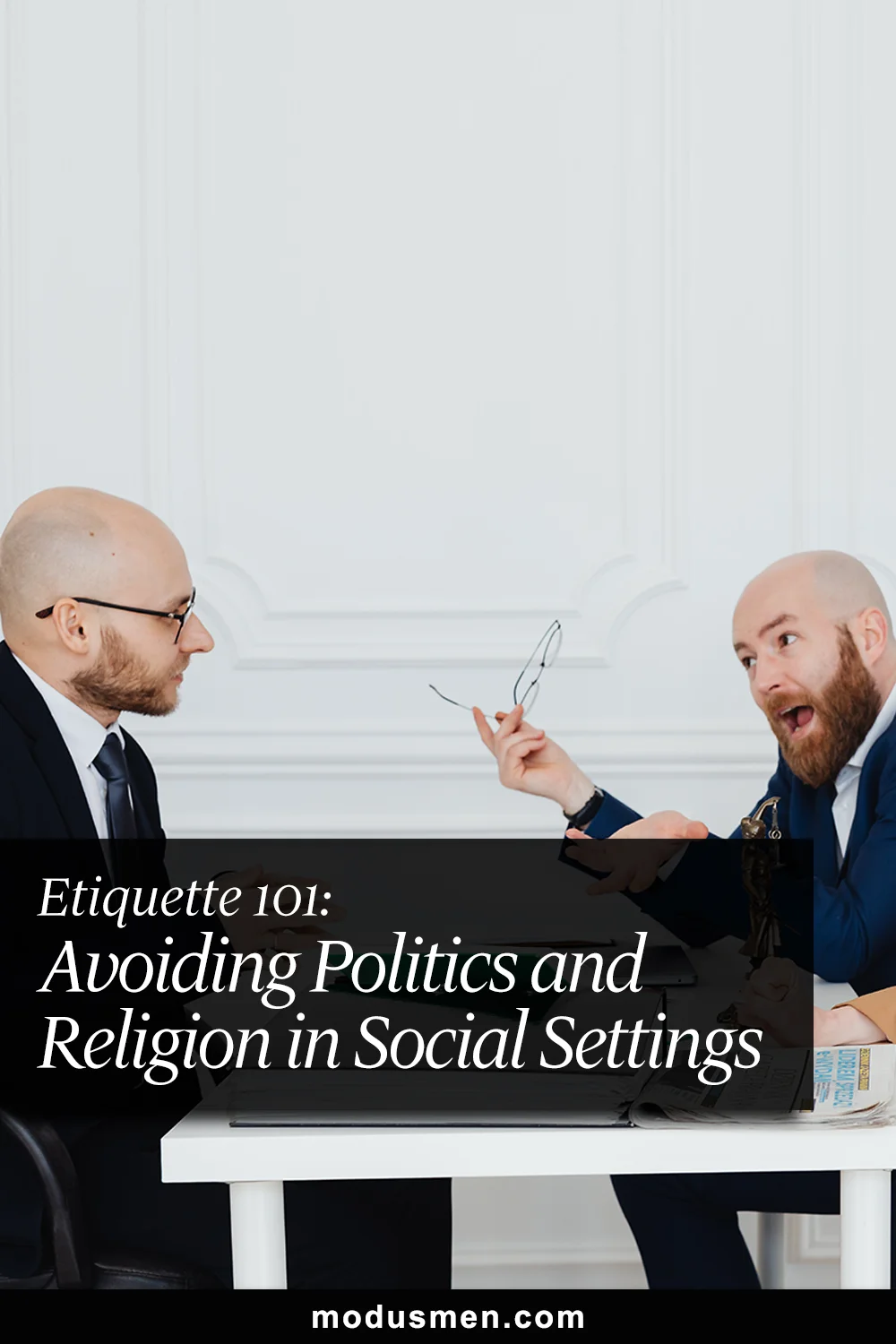
Etiquette 101: Avoiding Politics and Religion in Social Settings
When socializing with friends, family, and acquaintances, it is important to be mindful of the topics you bring up in conversation. Politics and religion are two highly charged and divisive topics that can quickly turn a pleasant evening into a heated argument. In this article, we’ll explore why it’s best to avoid politics and religion in social settings and what you can do instead to keep the conversation light and friendly.
Why Avoid Politics and Religion?
Politics and religion are two topics that can evoke strong emotions and opinions in people. These topics can be incredibly divisive and can quickly escalate into heated arguments. People have strong opinions and emotions when it comes to politics and religion, and discussing these topics in a social setting can quickly lead to hurt feelings and damaged relationships. No matter how passionately you feel about a particular issue or belief, it is always best to avoid discussing it in a social setting.
Furthermore, politics and religion can also be sensitive topics for some individuals, and discussing them in a social setting can make them feel uncomfortable or targeted. Additionally, not everyone in the room may share your views on these topics, and discussing them can result in a divisive and unpleasant experience for everyone involved. By avoiding politics and religion in social settings, you can maintain a positive and respectful environment for all parties involved.
The practice of avoiding politics and religion in social settings has a long history, dating back to ancient civilizations where social gatherings were often used as an opportunity to build and maintain relationships. In many cultures, it was considered rude or impolite to bring up divisive topics that could cause arguments or harm to relationships.
During the Renaissance period, the idea of avoiding politics and religion in social settings became even more important, as it was considered a sign of good manners and good breeding to avoid sensitive topics in polite conversation.
In the modern era, the tradition of avoiding politics and religion in social settings has continued, and has become even more relevant in today’s highly polarized and divided world. With the rise of social media and online platforms, it has become easier for individuals to share their political and religious views with a wider audience, which can lead to increased tension and conflict in real-life social settings.
What if someone else brings up politics or religion?
If another person in the group brings up politics or religion, it is important to handle the situation with tact and diplomacy. In today’s politically charged environment, this may seem like a difficult task. Here are some tips on how to handle such a situation:
- Change the subject: Politely steer the conversation in a different direction by bringing up another topic. You could say something like, “Let’s talk about something more lighthearted, like our favorite movies.”
- Be neutral: If the conversation becomes heated, try to stay neutral and avoid getting drawn into the argument. You can say something like, “I prefer not to discuss politics or religion in a social setting, can we talk about something else?”
- Respect others’ opinions: Even if you disagree with someone’s views on politics or religion, it is important to respect their opinions and avoid getting into an argument. You could say something like, “I understand where you’re coming from, but let’s move on to another topic.”
- Avoid confrontation: If someone is getting too passionate or aggressive in their opinions, it is best to avoid confrontation and simply walk away. You could say something like, “Excuse me, I’m going to grab a drink,” and leave the conversation.
By handling the situation with tact and diplomacy, you can maintain a positive and respectful atmosphere in the group and avoid any potential conflicts.
What to Talk About Instead
So, what can you talk about instead of politics and religion in a social setting? The possibilities are endless, but here are a few ideas to get you started:
- Hobbies and interests: Ask others about their hobbies and interests. People love talking about things they are passionate about, and it can be a great way to connect with others.
- Travel: If you’ve recently been on a trip or have a favorite travel destination, share your experiences and ask others about their travels.
- Food and drink: Talk about your favorite restaurants or recipes. You can even plan a potluck or dinner party together.
- Pop culture: Discuss the latest movies, books, or TV shows.
- Sports: If you’re a sports fan, talk about your favorite teams and players.
In Conclusion
Politics and religion are sensitive topics that can quickly turn a social gathering into an argument. By avoiding these topics and focusing on lighter, more enjoyable subjects, you can ensure that your social events are positive and memorable experiences. So next time you’re at a party or get-together, remember to keep the conversation light and friendly, and enjoy the company of those around you.






